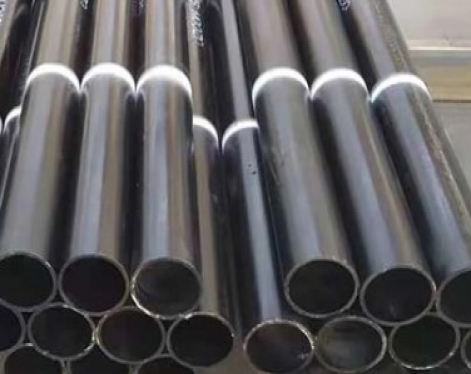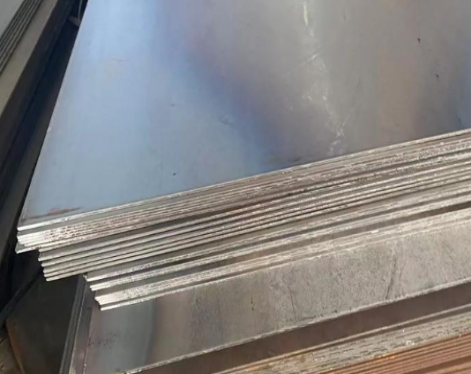Boiler tubes are a crucial component of boiler systems, primarily used to transport high-temperature, high-pressure water, steam, or other media. Due to their complex operating environment, boiler tubes must possess excellent corrosion resistance, particularly stability in acidic and alkaline environments. This article will discuss in detail the materials used for boiler tubes, the mechanisms of acid and alkaline corrosion, methods for uating their resistance, and measures to improve this performance.
Boiler tube material and acid and alkali resistance
The material of boiler tubes directly affects their acid and alkali resistance. Common boiler tube materials include carbon steel, alloy steel, stainless steel, and nickel-based alloys. The acid and alkali resistance of different materials varies greatly:
1. Carbon steel boiler tubes
Carbon steel is the most commonly used material for boiler tubes. It offers low cost and high strength, but its corrosion resistance in acidic and alkaline environments is poor. Carbon steel is susceptible to uniform or localized corrosion in acidic environments, and the corrosion rate is significantly accelerated under high temperature and pressure conditions. In alkaline environments, carbon steel exhibits slightly better corrosion resistance, but alkali embrittlement is still a concern.
2. Alloy steel boiler tubes
Alloy steels, such as chrome-molybdenum steel, enhance their corrosion resistance through the addition of alloying elements (such as chromium, molybdenum, and nickel). The addition of chromium forms a dense oxide film on the surface, effectively resisting acid and alkali corrosion. Alloy steel boiler tubes perform well in moderately concentrated acid and alkali environments, but caution is advised when using them in strong acid or alkali environments.
3. Stainless steel boiler tubes
Stainless steels (such as 304 and 316L) offer excellent acid and alkali resistance, especially in acidic environments. The chromium and nickel in stainless steel form a stable passivation film, effectively resisting corrosion. 316L stainless steel, due to its molybdenum content, exhibits even better acid resistance. Stainless steel boiler tubes are suitable for use in strong acid or alkaline environments, but they are more expensive.
4. Nickel-based alloy boiler tubes
Nickel-based alloys (such as Inconel and Hastelloy) perform exceptionally well in extreme acid and alkali environments, offering exceptional corrosion resistance. These materials are suitable for harsh conditions involving high concentrations of acid and alkali, or high temperatures and pressures, but they are expensive and are typically reserved for specialized applications.

Acid and alkali corrosion mechanism
1. Acidic Corrosion
Acidic media (such as sulfuric acid, hydrochloric acid, and nitric acid) react chemically with metal surfaces, causing metal dissolution. Under high temperature and high pressure conditions, the rate of acidic corrosion accelerates, easily causing uniform thinning or localized perforation of boiler tubes.
2. Alkaline Corrosion
Alkaline media (such as sodium hydroxide and potassium hydroxide) dissolve the oxide film on the metal surface, causing alkali embrittlement. Alkali embrittlement can make metal materials brittle, deteriorate their mechanical properties, and even cause cracking.
3. Electrochemical Corrosion
In acidic or alkaline environments, microcells may form on the surface of boiler tubes, leading to electrochemical corrosion. This corrosion typically manifests as localized pitting or crevice corrosion, which poses significant risks to boiler tubes.
Measures to improve the acid and alkali resistance of boiler tubes
In order to improve the corrosion resistance of boiler tubes in acid and alkali environments, the following measures can be taken:
1. Select the appropriate material
Select the appropriate boiler tube material based on the operating environment. For example, stainless steel or nickel-based alloys are preferred in highly acidic environments, while alloy steel can be used in moderately acidic or alkaline environments.
2. Surface Treatment
Boiler tube surfaces are passivated, plated, or coated to improve corrosion resistance. Examples include electroplating chrome, spraying ceramic coatings, or applying acid- and alkali-resistant paints.
3. Control media conditions
Slow down the rate of acid-base corrosion by adding corrosion inhibitors, adjusting the pH, or lowering the media temperature.
4. Regular Maintenance and Inspection
Regularly clean, inspect, and maintain boiler tubes to promptly detect and address corrosion issues and extend their service life.
Read more: What is the Energy-saving Performance of Boiler Tubes?
Boiler tube material and acid and alkali resistance
The material of boiler tubes directly affects their acid and alkali resistance. Common boiler tube materials include carbon steel, alloy steel, stainless steel, and nickel-based alloys. The acid and alkali resistance of different materials varies greatly:
1. Carbon steel boiler tubes
Carbon steel is the most commonly used material for boiler tubes. It offers low cost and high strength, but its corrosion resistance in acidic and alkaline environments is poor. Carbon steel is susceptible to uniform or localized corrosion in acidic environments, and the corrosion rate is significantly accelerated under high temperature and pressure conditions. In alkaline environments, carbon steel exhibits slightly better corrosion resistance, but alkali embrittlement is still a concern.
2. Alloy steel boiler tubes
Alloy steels, such as chrome-molybdenum steel, enhance their corrosion resistance through the addition of alloying elements (such as chromium, molybdenum, and nickel). The addition of chromium forms a dense oxide film on the surface, effectively resisting acid and alkali corrosion. Alloy steel boiler tubes perform well in moderately concentrated acid and alkali environments, but caution is advised when using them in strong acid or alkali environments.
3. Stainless steel boiler tubes
Stainless steels (such as 304 and 316L) offer excellent acid and alkali resistance, especially in acidic environments. The chromium and nickel in stainless steel form a stable passivation film, effectively resisting corrosion. 316L stainless steel, due to its molybdenum content, exhibits even better acid resistance. Stainless steel boiler tubes are suitable for use in strong acid or alkaline environments, but they are more expensive.
4. Nickel-based alloy boiler tubes
Nickel-based alloys (such as Inconel and Hastelloy) perform exceptionally well in extreme acid and alkali environments, offering exceptional corrosion resistance. These materials are suitable for harsh conditions involving high concentrations of acid and alkali, or high temperatures and pressures, but they are expensive and are typically reserved for specialized applications.

Acid and alkali corrosion mechanism
1. Acidic Corrosion
Acidic media (such as sulfuric acid, hydrochloric acid, and nitric acid) react chemically with metal surfaces, causing metal dissolution. Under high temperature and high pressure conditions, the rate of acidic corrosion accelerates, easily causing uniform thinning or localized perforation of boiler tubes.
2. Alkaline Corrosion
Alkaline media (such as sodium hydroxide and potassium hydroxide) dissolve the oxide film on the metal surface, causing alkali embrittlement. Alkali embrittlement can make metal materials brittle, deteriorate their mechanical properties, and even cause cracking.
3. Electrochemical Corrosion
In acidic or alkaline environments, microcells may form on the surface of boiler tubes, leading to electrochemical corrosion. This corrosion typically manifests as localized pitting or crevice corrosion, which poses significant risks to boiler tubes.
Measures to improve the acid and alkali resistance of boiler tubes
In order to improve the corrosion resistance of boiler tubes in acid and alkali environments, the following measures can be taken:
1. Select the appropriate material
Select the appropriate boiler tube material based on the operating environment. For example, stainless steel or nickel-based alloys are preferred in highly acidic environments, while alloy steel can be used in moderately acidic or alkaline environments.
2. Surface Treatment
Boiler tube surfaces are passivated, plated, or coated to improve corrosion resistance. Examples include electroplating chrome, spraying ceramic coatings, or applying acid- and alkali-resistant paints.
3. Control media conditions
Slow down the rate of acid-base corrosion by adding corrosion inhibitors, adjusting the pH, or lowering the media temperature.
4. Regular Maintenance and Inspection
Regularly clean, inspect, and maintain boiler tubes to promptly detect and address corrosion issues and extend their service life.
Read more: What is the Energy-saving Performance of Boiler Tubes?









